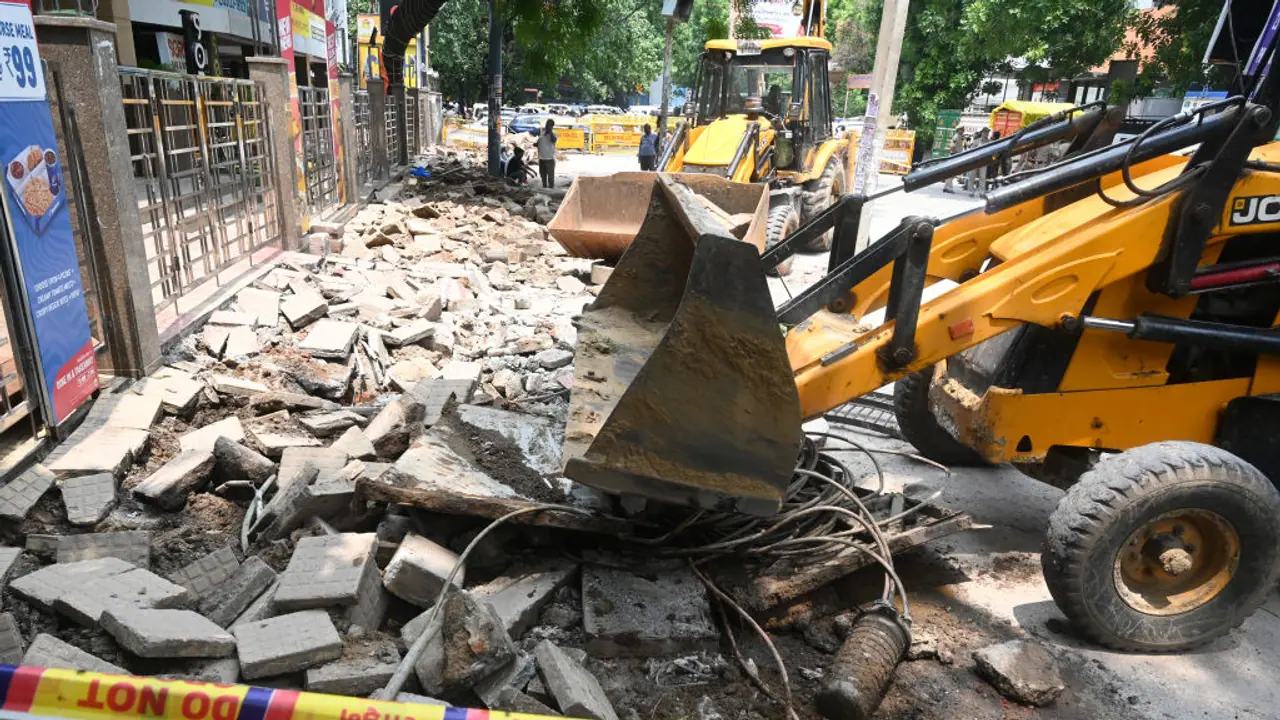In a strong rebuke of instant 'bulldozer justice,' the Supreme Court on Wednesday established pan-India guidelines for property demolitions.
The Supreme Court issued a decisive ruling on Wednesday condemning the practice of "bulldozer justice" and underscoring that the executive branch cannot order property demolitions as punishment based solely on accusations or convictions in criminal cases. The Court emphasized that this practice violates the principles of rule of law and the separation of powers, and introduced pan-India guidelines to regulate demolition actions by local authorities.

In its landmark judgment, a bench comprising Justices B.R. Gavai and K.V. Viswanathan criticized the executive for adopting a punitive stance against alleged offenders by demolishing their properties without due judicial process. The Court highlighted the dangerous precedent set by demolishing properties based solely on accusations, likening it to a breakdown in law and order where "might was right" — an approach incompatible with constitutional democracy.
"The executive cannot pronounce a person guilty. Only on the basis of accusation, if the executive demolishes the property of the person, it will strike at the rule of law. The executive cannot become a judge and demolish the properties of the persons accused.. The chilling sight of a bulldozer demolishing a building reminds one of lawlessness where might was right. Such highhanded and arbitrary actions have no place in a constitutional democracy. Such actions have to deal with a heavy hand of law. Our Constitutional ethos do not permit such a course of law...," the Court pronounced.
"Public officials who take law in their hands and act in such a high-handed manner must be fastened with accountability..." the Court observed while highlighting the importance of restitution.
The Court also noted that such actions constitute "collective punishment" imposed on the family of the accused or convict.
Key pan-India guidelines on demolition of properties
In response to petitions from groups such as Jamiat Ulema-i-Hind, the Supreme Court issued a set of guidelines to ensure fair and transparent procedures before any demolition. Here are the major directives:
1. Once an order of demolition is passed, the affected party must be granted reasonable time to challenge it before the appropriate forum. For individuals who do not wish to contest the order, sufficient time should still be provided to vacate the premises. "It is not a happy sight to see women, children and aged persons dragged to the street overnight. Heavens will not fall on the authorities if they hold their hands for some period," the Court observed.
2. The Court clarified that these directions do not apply to unauthorized structures in public spaces, such as roads, streets, footpaths, areas adjacent to railway lines, or any water bodies. They also do not apply in cases where a demolition order has already been issued by a Court.
3. No demolition should proceed without prior issuance of a show-cause notice. This notice must be returnable within the time frame stipulated by local municipal laws or within 15 days from the date of service, whichever is later. The notice must be served to the owner via registered post and affixed to the exterior of the structure. The 15-day period will begin from the date the notice is received.
4. To avoid allegations of backdating, the Court mandated that once the notice is served, the office of the Collector/District Magistrate (DM) must be notified via email, with an autogenerated acknowledgment confirming receipt. Each DM must designate a nodal officer, assign an official email address, and share this information with all officials responsible for building regulations within one month from the date of the order.
5. The notice should clearly detail the nature of the unauthorized construction, specify any violations, list the grounds for demolition, and provide a date for a personal hearing before a designated authority.
6. All municipal authorities are instructed to create a designated digital portal within three months of this judgment, where service details, notice postings, replies, show-cause notices, and orders are available for public access.
7. The designated authority must offer the affected party a personal hearing, recording the minutes of this meeting. The final order should include the arguments presented by the respondent.
8. Demolition actions must be videographed, with the demolition report submitted to the Municipal Commissioner.
The judgment comes as a response to multiple petitions filed over "bulldozer justice," a term that gained prominence following incidents in Delhi’s Jahangirpuri in April 2022 and similar cases in Madhya Pradesh and Rajasthan. During the hearings, the Court condemned the practice of demolishing homes as punitive action and signaled its intent to establish a uniform set of procedures across states.
The Court reserved its order on October 1, committing to a pan-India directive to prevent the misuse of demolition orders. Recognizing the importance of preventing encroachments on public spaces, the Court’s order still emphasized judicial oversight and adherence to due process in all cases.
In a nation governed by rule of law, the Supreme Court has clarified that instant punitive demolitions, without adherence to proper legal channels, cannot be accepted. The Court's ruling, invoking its special powers under Article 142 of the Constitution, seeks to ensure that demolitions are conducted fairly and only when authorized by due judicial or administrative process.
By laying down these pan-India guidelines, the Supreme Court has taken a strong stance against what it called "lawlessness," marking a significant step towards accountability and justice in property demolition actions across the country.
